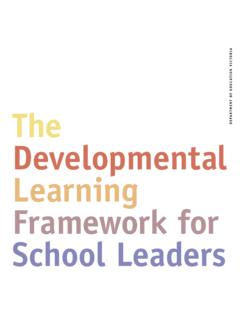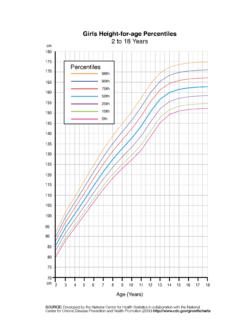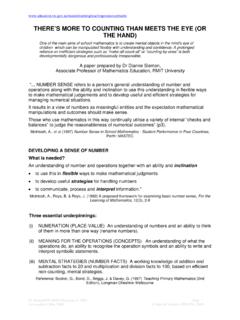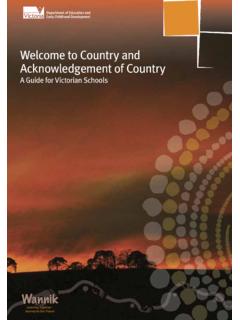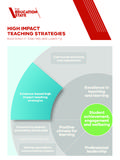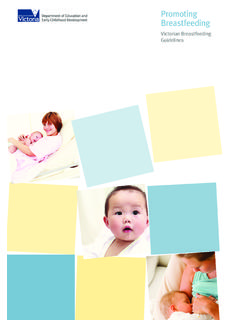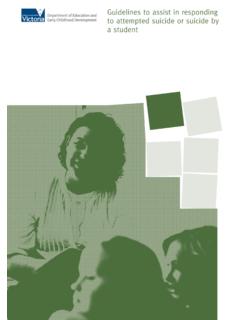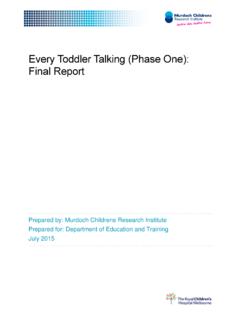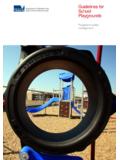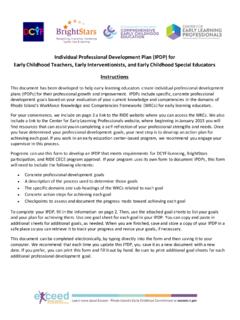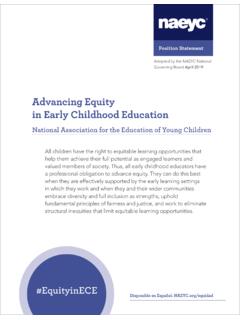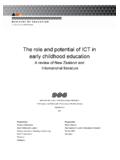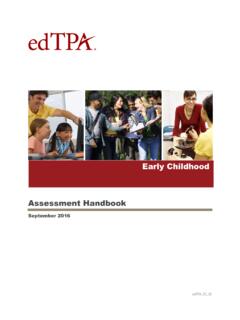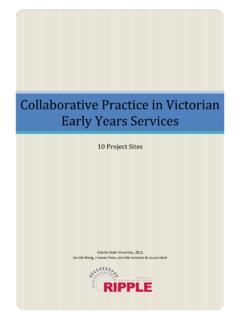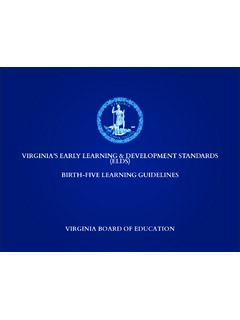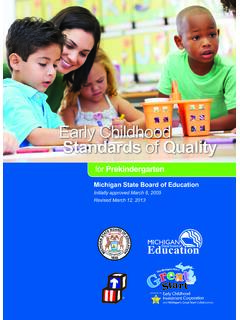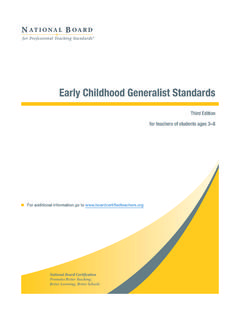Transcription of Practice Principle 8: Reflective Practice
1 Victorian early Years Learning and development Framework Evidence Paper Practice Principle 8: Reflective Practice Authored for the Department of Education and early childhood development by Louise Marbina, Amelia Church & Collette Tayler 2 Practice Principle 8: Reflective Practice Executive What is Reflective Practice ?..7 Why is Reflective Practice so important in early childhood le arning, development and teaching? ..10 How can we achieve best Practice ?..13 What are the implications for achieving the best outcomes for children?
2 17 Appendix A 3 The Victorian early Years Learning and development Framework guides early childhood professionals Practice in Victoria. The Victorian Framework identifies eight Practice principles for Learning and development . The Practice principles are based on the P 12 principles of Learning and Teaching, the pedagogy from the national early Years Learning Framework, and are informed by the latest research. The Practice principles are interrelated and designed to inform each other.
3 They are categorised as Collaborative, Effective and Reflective : Collaborative 1. Family centred Practice 2. Partnerships with professionals 3. High expectations for every child Effective 4. Equity and diversity 5. Respectful relationships and responsive engagement 6. Integrated teaching and learning approaches 7. Assessment for learning and development Reflective 8. Reflective Practice . These Evidence Papers document the research that underpins each Practice Principle . The content of the Evidence Papers will be developed into a series of practical guides Practice principles in Practice which will provide practical advice to early childhood professionals on how to align their Practice to the Practice principles .
4 4 Executive Summary The Victorian early Years Learning and development Framework clearly acknowledges that highly effective early childhood professionals engage in Reflective Practice . In the early childhood development context, Reflective Practice is best described as a continuous process that involves professionals analysing their Practice in order to identify what drives children s learning and development ; as well as the impact of their own values on understanding children s learning and development .
5 A study of early childhood care and education across 20 countries found that improvements in children s long term outcomes are achievable for all children when early learning experiences are high quality (OECD, 2006). Reflective Practice and critically Reflective Practice is a key feature of high quality early childhood education and care settings. Reflective Practice allows early childhood professionals to develop a critical understanding of their own Practice , and continually develop the necessary skills, knowledge and approaches to achieve the best outcomes for children.
6 Research from MacNaughton (2005) and other experts found that professionals who regularly reflect on what they do, why they do it and how this new knowledge can be used to improve their Practice , achieve the best outcomes for children and families (MacNaughton, 2005; Sylva et al, 2004; Siraj Blatchford et al, 2008; Raban et al, 2007). Bae (2009) and Dall Alba (2009) found that the most effective early childhood professionals reflect on and adopt flexible images of children and childhood and reconsider the roles they play in children s lives.
7 Reflecting on and posing critical questions about the possible unfairness or inequalities of preconceived ideas about children has been identified as crucial in becoming more objective in how images of children are constructed (MacNaugton, 2003; Appl & Yordle, 2005; Smith, 2007). Moreover, when professionals consider the power inequalities between themselves and children, they are able to create real opportunities for children to express their own thoughts and feelings and actively influence what happens in their lives.
8 This becomes possible when professionals reflect on the how and what of the decisions they make about their interactions with children and families. In addition, Maccoby (1980) found that children whose views are respected are more encouraged to take responsibility for their actions than those whose views are not. Evidence shows that the degree to which a person feels in control of their life affects other measures of their well being and self esteem, even amongst babies. 5 The positive impact that Reflective Practice has on outcomes for children is clearly documented in the research literature.
9 The implications for Practice informed by the research evidence and detailed in this Paper are: Reflection in action and reflection after the event achieves the best outcomes for children To provide high quality, effective services for children and families, there must be a commitment to ongoing learning, professional development and Reflective Practice in environments that are respectful and responsive to children, families and professionals Reflective Practice provides a common goal for professionals working across agencies in early childhood Reflection and critical reflection are unifying practices for diverse groups of professionals professional networks and learning communities support early childhood professionals to participate in professional development that encourages critical reflection Environments where Reflective Practice is valued need to be actively created Mentors can
10 Provide resources, skills and guidance to develop Reflective Practice . 6 Introduction The Victorian Framework recognises the importance of Reflective Practice for highly effective professionals. It states: Children s learning and development is advanced when they experience interactions with highly effective early childhood professionals. early childhood professionals become more effective through critical reflection and a strong culture of professional enquiry.
